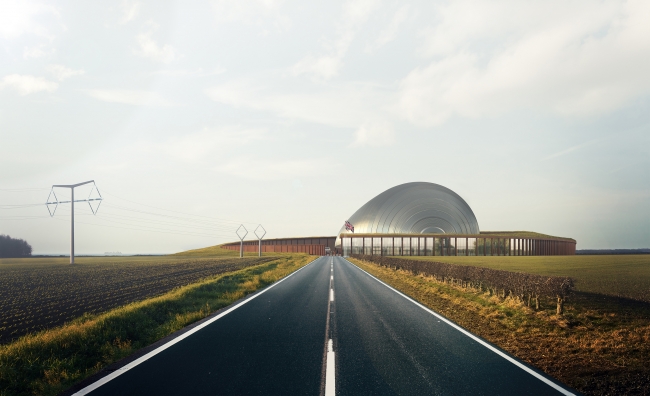3 minute read
Rolls-Royce unveils plan for 16 new nuclear power stations
The UK Small Modular Reactor (SMR) consortium, led by Rolls-Royce, says that it expects to create 6,000 regional UK jobs within the next five years, if the UK government makes a clear commitment that enables a fleet of 16 small modular reactor power stations to be built over the next 20 years.
The power stations will help secure the UK’s net zero commitments affordably, revitalise the UK’s regional industrial base and position the UK to secure exports of at least £250bn. Up to 80% (by value) of the power station components will be made in factories in the Midlands and North of England, before being transported to existing nuclear sites around the country for rapid assembly inside weatherproof canopies.
As well as a further 34,000 long-term jobs by the mid-2030s, mostly high value manufacturing roles, the power stations will also provide low carbon energy to produce net zero synthetic aviation fuels and hydrogen, supporting the UK government’s Jet Zero ambition and the wider decarbonisation of transport.
The UK SMR consortium comprises Assystem, Atkins, BAM Nuttall, Jacobs, Laing O’Rourke, National Nuclear Laboratory, Nuclear Advanced Manufacturing Research Centre, Rolls-Royce and TWI.
Never miss the latest manufacturing news by signing up to our newsletter here

Rolls-Royce is leading a consortium that could create thousands of new jobs by building new small modular reactor power stations. Up to 80% of the power station components would be made in UK factories / Picture: Roll-Royce
Tom Samson, interim chief executive officer of the UK SMR Consortium, said: “We have developed a manufacturing and assembly process that will make reliable, low carbon nuclear power affordable, deliverable and investable.
“By creating a factory-built power station that rolls off the assembly line we have radically reduced many construction risks associated with new nuclear power stations; and by using proven nuclear technology alongside standardised and simplified components, we make it much more cheaply.”
Each compact nuclear power station will provide 440MW of electricity, enough low carbon power for a city of 450,000 homes for 60 years. The first unit will be operational within 10 years of the first order, with the factories able to produce two units per year thereafter. Doubling or trebling the number of factories would allow more power stations to be made more quickly to meet additional UK and international demand.
Samson, added: “The UK SMR Consortium presents the UK with a domestic nuclear energy solution for the first time in a generation, with a product that is engineered, designed and manufactured in the UK. This creates a unique opportunity to revitalise the UK’s industrial base and paves the way for the future commercialisation of advanced reactor solutions, including fusion technology.
“Our ambition to accelerate the deployment of a fleet these power stations across the UK will contribute massively to the ‘levelling up’ agenda, creating sustainable high value manufacturing jobs in those areas most in need of economic activity.
“In addition, the fleet approach will bring huge value to the communities of which these power stations will be a part, with economic activity spanning 60 years of operations. Families and businesses in our existing nuclear estate, such as West Cumbria and North Wales, will benefit from prosperity, social mobility and opportunity for decades to come.”
With a defined path forward in the UK, the prospects for global exports are enormous and the unique features of UK SMRs make them attractive low cost, deliverable and investable solutions in many countries looking to decarbonise their economies.
Two new agreements have been announced this week, highlighting the power station’s international appeal. US power giant, Exelon Generation, has agreed to pursue the potential for it to operate compact nuclear power stations both in the UK and internationally. Czech Republic power entity CEZ, has signed up to see how it could be used in its domestic programme. Turkey is also currently working through a feasibility study for domestic use, as well as possible joint power station production, to underpin clean economic growth.
The current phase of the programme has been jointly funded by all consortium members and UK Research and Innovation.